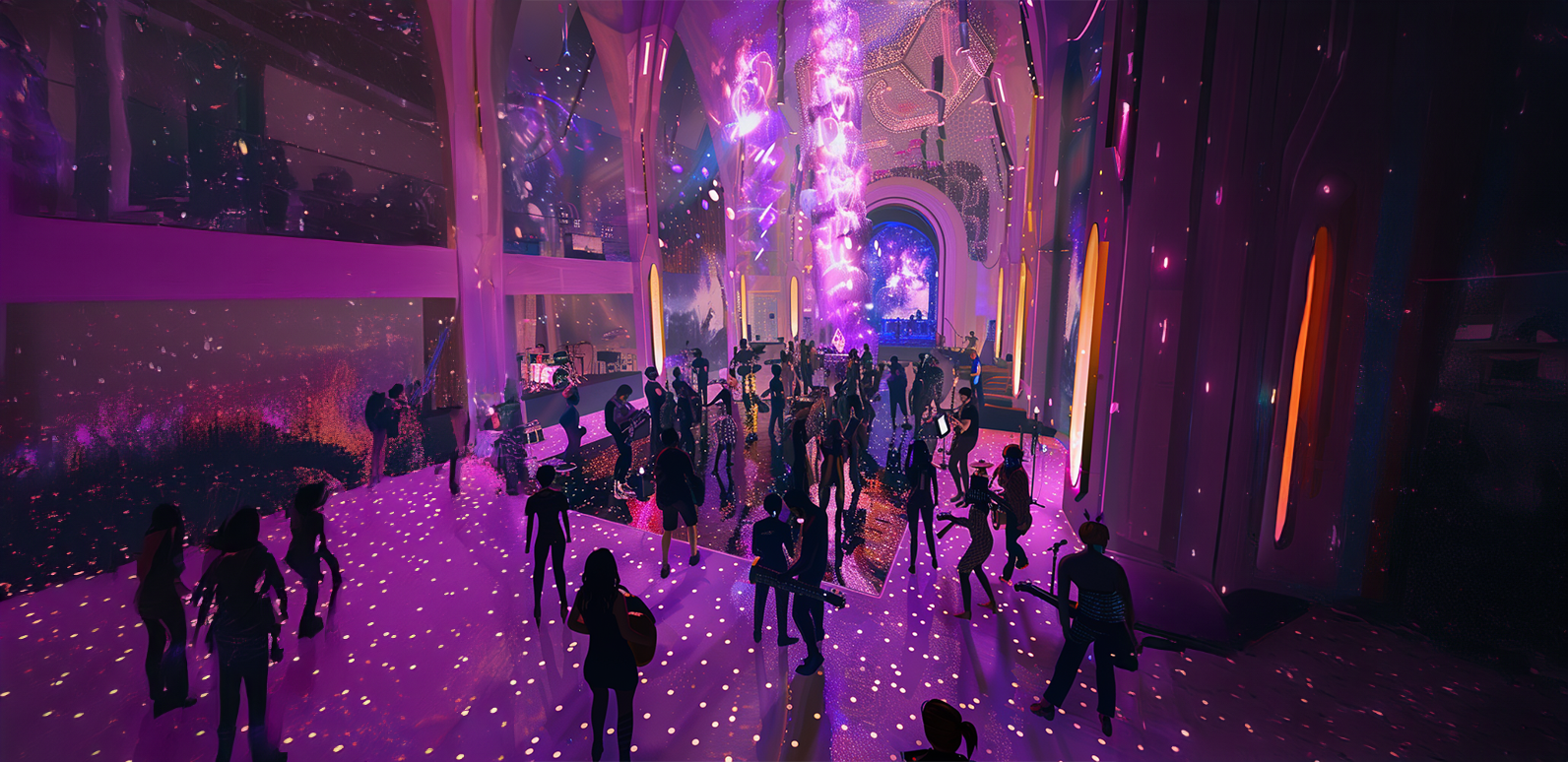
Trends and Technology in Live Music
Global business trends and new technologies are driving a rapid evolution in the live music industry. This change results from technological advancements, shifts in consumer behaviors, and new business strategies. Notably, there is an increase in the use of virtual reality and the implementation of predictive analytics and Big Data tools to gain a deep understanding of audience interests and boost the success rate of organized concerts.
Adoption of Live Streaming Technologies
The COVID-19 pandemic significantly accelerated the adoption of live streaming as a way to maintain concerts and musical events during the lockdown. Platforms such as Twitch, YouTube, and TikTok have become essential channels for artists seeking to reach global audiences without the physical limitations of traditional concerts. This trend continues even after the pandemic, with hybrid events that combine physical and virtual attendance.
Virtual and Augmented Reality Experiences
Virtual reality (VR) and augmented reality (AR) are transforming how fans experience live music. Companies like Oculus and platforms like Wave VR are making concerts more immersive, offering users three-dimensional concert experiences from their homes. This also opens new monetization opportunities through the sale of virtual tickets and digital merchandise.
Big Data and Predictive Analytics
Data analytics tools based on artificial intelligence are helping to better understand audience preferences and make more informed strategic decisions. This includes everything from choosing cities for tours to selecting repertoires and personalizing experiences for attendees. Platforms like Spotify and Apple Music provide valuable data that event organizers can use to improve concert planning and execution.
Smart Ticketing and Blockchain
Blockchain technology is being explored to make ticket sales more secure and transparent. Blockchain-based ticketing systems can reduce fraud and the resale of tickets at excessive prices. Additionally, smart tickets can include extra features such as VIP access or discounts on merchandise, enhancing the user experience.
Sustainability and Social Responsibility
Increasingly, live music events are adopting sustainable practices to reduce their environmental impact. This includes using renewable energy, reducing waste, and implementing measures to minimize the carbon footprint. Sustainability is becoming an important value for both organizers and attendees.
Flexible Business Models and Revenue Diversification
The industry is seeing a diversification of revenue sources beyond ticket sales. This includes brand sponsorships, streaming deals, merchandise sales, and VIP experiences. Additionally, subscriptions and pay-per-event models are gaining popularity as viable business models.
Conclusion
The live music industry is undergoing a significant transformation driven by the integration of advanced technologies and changes in consumer behaviors. Together, these trends and technologies are shaping a more dynamic, interactive, and sustainable future for live music, marking a new era in the music industry.